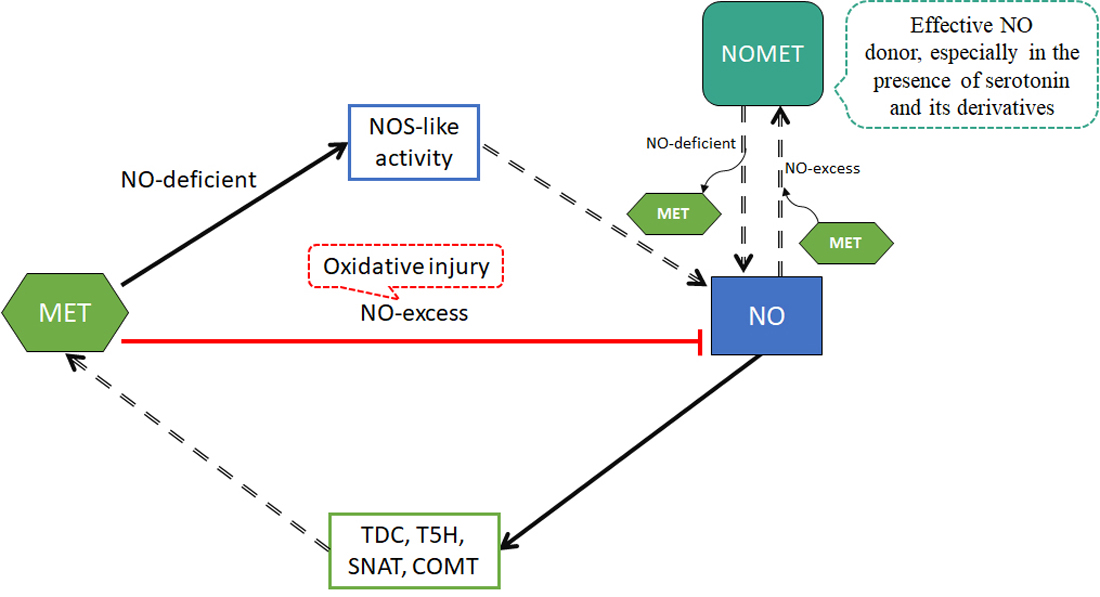Abiotic stress in plants is an increasingly common problem in agriculture, and thus, studies on plant treatments with specific certain compounds that may help to mitigate these effects have increased in recent years Melatonin (MET) application and its role in mitigating the negative effects of abiotic stress in plants have become important in the last few years. MET, a derivative of tryptophan, is an important plant-related response molecule involved in the growth, development, and reproduction of plants, and the induction of different stress factors. In addition, MET plays a protective role against different abiotic stresses such as salinity, high/low temperature, high light, waterlogging, nutrient deficiency and stress combination by regulating both the enzymatic and non-enzymatic antioxidant defense systems. Also, MET interacts with many signaling molecules, among these, reactive oxygen species (ROS) and nitric oxide (NO), and participates in a wide variety of physiological reactions. It is well known that NO produces S-nitrosylation and NO2-Tyr of important antioxidant-related proteins, being this an important mechanism for maintaining the antioxidant capacity of the AsA/GSH cycle under nitro-oxidative conditions, being extensively reviewed here under different abiotic stress conditions. Lastly, in this review, we show the coordination between NO and MET as a long-range signaling molecule, regulating many responses in plants, including plant growth and abiotic stress tolerance. Despite all the knowledge acquired over the years, there is still more to know about how MET and NO act on tolerance to abiotic stresses.

